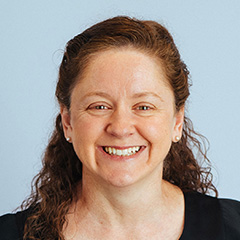A new financial year often brings a raft of new changes and legislation for SMSFs. For the new financial year starting on 1 July 2020, there has been some small but important tweaks for SMSFs. It is good news for those who wish to contribute beyond the age of 65, building their retirement savings in an SMSF (or indeed any super) account.
You’re out of free articles for this month
To continue reading the rest of this article, please log in.
Create free account to get unlimited news articles and more!
Up until 30 June 2020, once someone reached 65 years of age, it became more arduous to put extra money into an SMSF account as they needed to be gainfully employed. This meant satisfying the superannuation work test by working at least 40 hours in no more than 30 consecutive days, during the financial year in which the contributions were made.
This applied for everyone with any type of regular superannuation or SMSF account. Mandated employer contributions (e.g. SG) paid into the SMSF account were accepted, but non-concessional or non-mandated contributions (e.g. voluntary contributions) (other than downsizer contributions) were subject to the scrutiny of this work test. Accountants would usually need to prepare a declaration for SMSF members age 65+ to sign to confirm this work test had been satisfied.
A piece of legislation has now aligned the work test requirement with the eligibility age for the age pension. This makes logical sense since the age pension is currently legislated to increase from the age of 66 to 67 from 1 July 2023. The system prior to 30 June 2020 discouraged retirees who had reached age 65 as they were not eligible to apply for the age pension but also couldn’t add to their superannuation balance because they didn’t work. The new rules allow older Australians to build up their super balance without working, until they reach 67 years of age.
Effective 1 July 2020, the government has now abolished the work test for those SMSF holders aged 65 and 66 who make non-mandated contributions to their SMSF account. From this date, anyone under the age of 67 years can make contributions to their SMSF without needing to satisfy the requirements of a work test.
Someone who wants to make a contribution to their SMSF on their 67th birthday would have needed to meet the work test beforehand, but someone who is 66 years and 364 days does not need to meet the work test.
There are three things that accountants must keep in mind:
- There have been no changes to the work test itself – this still requires gainful employment (usually paid work).
- There has been no changes to the timing requirements – the work test must still be met before the contribution is made and in the same financial year as the contribution.
- We are yet to see Parliament pass the changes which would allow those turning 66 and 67 to trigger the non-concessional contribution “bring forward” arrangements (potentially allowing a non-concessional contribution of up to $300,000 over a three-year period depending on the size of their super balance).
How does it work in practice?
John will turn 67 in November 2020 and will work 40 hours during the first week of October 2020. He could make concessional and non-concessional contributions to his SMSF prior to his 67th birthday without the need to meet the work test. However, after John turns 67, he will only be able to make contributions if he has worked at least 40 hours in no more than 30 consecutive days prior to the contribution.
Lyn Formica, head of SMSF technical and education services, Heffron

 Login
Login







You are not authorised to post comments.
Comments will undergo moderation before they get published.